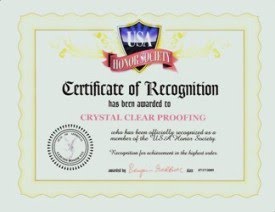The Latin abbreviations i.e. and e.g. are the cause of confusion for many people, and are often used incorrectly. There is a very simple way to know which is proper to use, simply by understanding their meanings and what they stand for.
"I.e." which, written out fully in Latin is "Id Est," means "that is," or "in other words." The second example, "in other words," beginning with the letter "i" is an excellent way to remember its meaning, (i.e. = in other words). It specifies, or makes more clear.
"E.g." comes from the Latin "Exempli Gratia" and its translation is "for the sake of an example." Again, there is a very easy way to remember the meaning and therefore usage of the abbreviation, in that "example" is in its description, (e.g. = example). "E.g." is also used in expressions similar to "including," when you're not intending to list everything that is being discussed.
Both i.e. and e.g. are most frequently used mid-sentence, and therefore are not capitalized. However, if you begin a sentence with one of them, e.g., "I.e." stands for "in other words," then you would follow the rules of capitalization, and the "I" would be uppercase.
Used mid-sentence, both i.e. and e.g. are always surrounded by commas. A comma ALWAYS comes after both abbreviations; the only time a comma does not precede one of them, is if you use one to begin a sentence. Both I.e. and E.g. look funny to most readers, but it is proper, following the rules of capitalization.
Some people question whether or not i.e. and e.g. should be italicized. The most accepted rule in grammar and answer to that question is that, both being such common abbreviations, they do not require italicization.
Hopefully this will give you a better understanding, i.e., clarify for you the difference between and the proper use of these abbreviations, so that when you're writing, e.g., that novel, you will have no problem determining which to use.
Wednesday, July 15, 2009
Subscribe to:
Post Comments (Atom)

































































Hey, I learned something! Although I don't believe I've really used either in my books.
ReplyDeleteL. Diane Wolfe
www.circleoffriendsbooks.blogspot.com
www.spunkonastick.net
www.thecircleoffriends.net
I'm so glad to find you here. We will keep in touch!
ReplyDeleteCarolyn Howard-Johnson
Blogging at Writer's Digest 101 Best Website pick www.sharingwithwriters.blogspot.com
you should have included sentences showing how they are properly used.
ReplyDeleteBoth are used in the final paragraph; however I do appreciate the feedback and will be sure to incorporate examples when appropriate in future posts.
ReplyDeleteThank you! I've never know what those meant or how to properly use them!
ReplyDeleteThanks for the explanation and tips. I've been using "i.e." incorrectly for about 20 years now in my business documents. Maybe it's time for a change. :-)
ReplyDeletePerfect! Thank you...
ReplyDeletePerfectly done. I was pretty sure I knew which to use, but now I have easy-to-remember definitions to always be sure in the future. Solidly done.
ReplyDelete